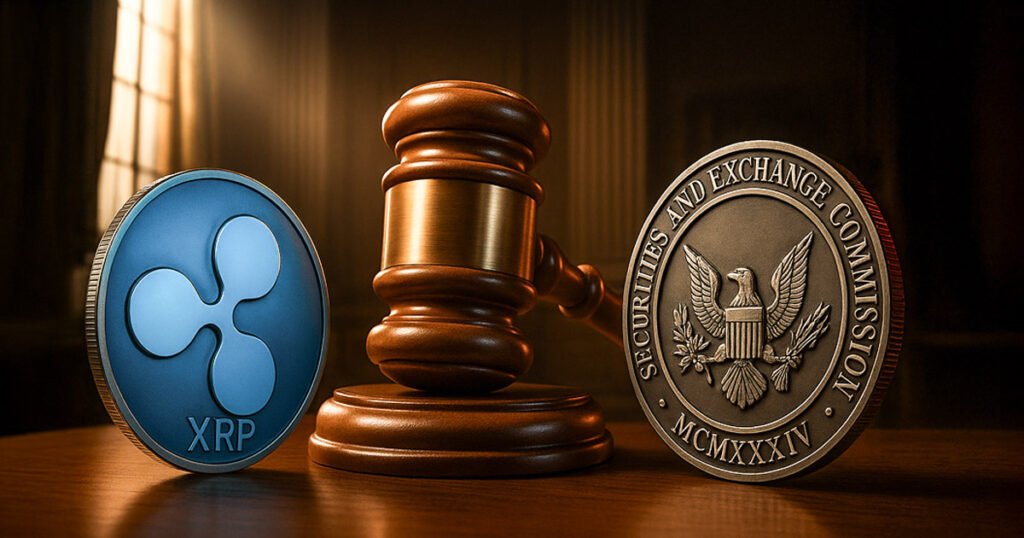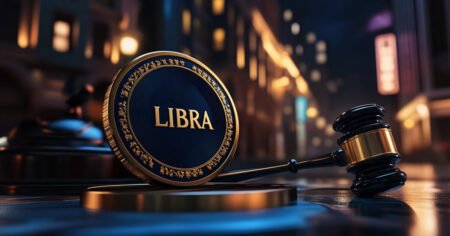Judge Torres Denies SEC and Ripple’s Joint Motion to Dissolve Court Order and Reduce Penalty
In a pivotal decision on June 26, U.S. District Judge Analisa Torres firmly rejected a joint request from the U.S. Securities and Exchange Commission (SEC) and Ripple Labs. They sought to dissolve an existing court order and lessen Ripple’s financial penalty, originally set at $125 million, by over 50%. The court’s terse one-line response, stating “The request is DENIED,” marks another significant moment in the protracted legal battle between Ripple and the SEC.
Judge Torres’s ruling underscores the importance of holding financial entities accountable within the cryptocurrency framework. The plaintiffs had hoped to negotiate a settlement, yet the judge reiterated her stance against altering approved judgments under ordinary circumstances. According to the Federal Rules of Civil Procedure, altering a final judgment requires demonstrating extraordinary reasons—something both parties failed to do in this instance. This ruling serves as a clear message about compliance and accountability in the cryptocurrency sector, signaling that the path to resolution is neither straightforward nor negotiable.
The Legal Justification Behind the Ruling
The court specifically highlighted that Ripple had previously been found in violation of federal securities laws, suggesting a significant likelihood of further misconduct. Judge Torres emphasized that the ruling was not merely about imposing penalties on Ripple but also served a greater purpose: to protect the public interest and deter similar violations in the future. This aspect of the ruling reinforces the idea that securities regulations are primarily designed to safeguard investors and maintain the integrity of financial markets, especially as they evolve to include cryptocurrencies.
In her ruling, Judge Torres noted that a governing principle within U.S. law is that judicial decisions, particularly regarding federal law, are not merely matters for private settlement. The Supreme Court has emphasized that such judgments have implications beyond the parties involved, belonging to the legal community and the public as a whole. This view illustrates the judicial system’s commitment to uphold broader regulatory and societal standards, rather than submitting to the whims of private litigants.
Implications for the Cryptocurrency Industry
The ramifications of Judge Torres’s decision extend beyond just Ripple and the SEC—this ruling sets a precedent for the entire cryptocurrency industry. By rejecting the attempt to vacate the injunction, the court emphasized the authority of regulatory bodies in maintaining oversight and compliance across digital asset platforms. It is a call to action for cryptocurrency firms operating within the U.S., emphasizing the necessity of adhering to securities laws and the potential repercussions of non-compliance.
Moreover, the ruling serves to reinforce investor confidence in the crypto markets. It signals that there are stringent checks and balances in place to protect investors. The SEC’s role is highlighted as critical in this regulatory environment, further solidifying its position as a pivotal authority in overseeing the evolving landscape of cryptocurrencies. The decision to maintain Ripple’s hefty penalty further underscores the urgent need for transparency and accountability within a sector often criticized for its lack of regulation.
Ripple’s Legal Journey Continues
Despite Judge Torres’s firm denial of their request, Ripple continues to stress its intention to comply with existing regulations. This case is emblematic of the broader struggle within the cryptocurrency industry to achieve regulatory clarity and work alongside authorities to establish best practices. Ripple’s management has expressed a willingness to settle this long-running dispute but must now navigate the complexities of court-imposed penalties and regulatory expectations in a tumultuous landscape.
This judgment provides an ongoing challenge for Ripple and similar firms aiming to operate responsibly while pushing the boundaries of innovation within the crypto space. It is clear that moving forward, Ripple will need to adopt a rigorous approach to compliance and transparency, focusing on rebuilding trust with regulators and investors alike.
A Call to Action for the Cryptocurrency Community
In light of this ruling, the entire cryptocurrency community should take heed. The decision emphasizes the importance of adhering to securities regulations and reinforces that violations will not only lead to financial penalties but also jeopardize the company’s reputation within the marketplace. Firms must have robust compliance frameworks in place and be willing to work with regulatory bodies to avoid the pitfalls highlighted in this case.
It’s essential for all players in the cryptocurrency sector, from startups to established firms, to understand that judicial rulings can have wide-reaching implications on their operation and legality. Engaging proactively with regulators and committing to transparency will be crucial as the regulatory landscape continues to evolve. This case serves as a reminder that the stakes are high—both for individual companies and for the industry’s overall legitimacy in the eyes of investors, regulators, and the public.
Conclusion: Looking Ahead in the Ripple Case
The outright denial from Judge Torres represents not just a momentary setback for Ripple and the SEC, but also a critical juncture for how cryptocurrency regulations will shape the future of financial interactions in this digital era. As the legal proceedings continue, it is imperative for companies like Ripple to embrace a compliance-first mentality. Those who navigate these challenges effectively may not only survive but also thrive in the increasingly competitive cryptocurrency market.
This ruling is a testament to the resilience of judicial oversight within the financial sector, reminding all entities of their responsibility to operate transparently and ethically. As the cryptocurrency industry continues to evolve, the principles of accountability and compliance will become ever more critical, shaping the landscape for years to come. Thus, the Ripple case serves as a crucial learning opportunity for the industry—a chance to build toward a future that honors investor protection and regulatory integrity in equal measure.

















